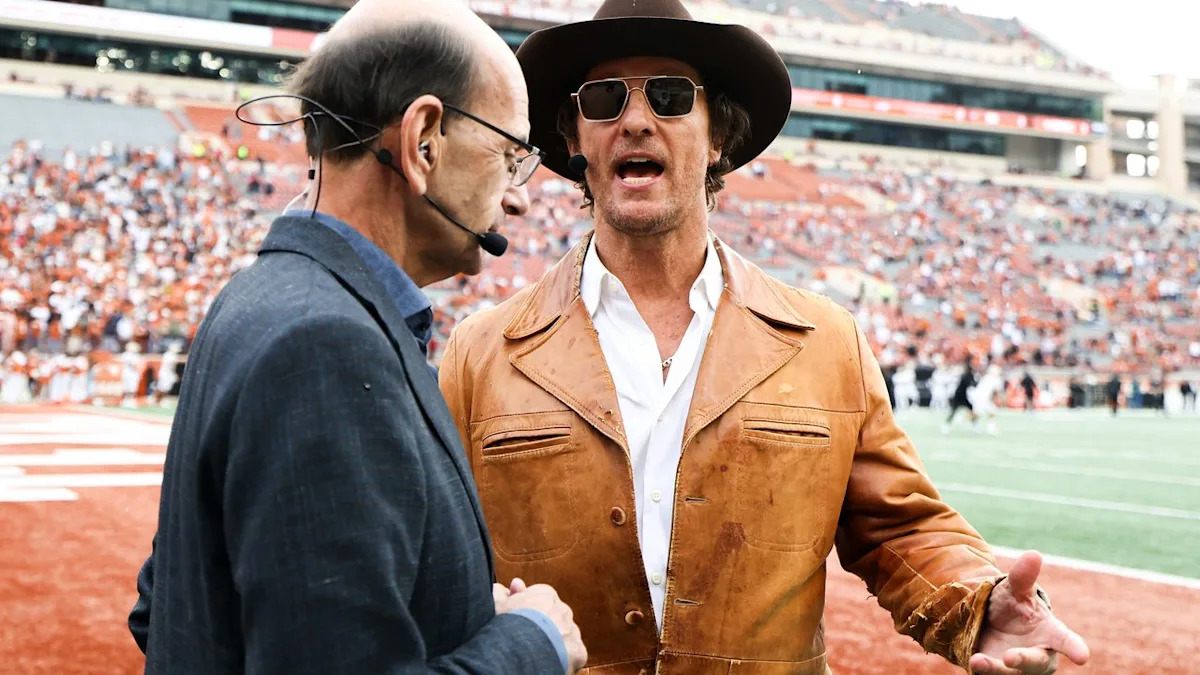Celebrities used to launch tequila and athleisure brands; now, they launch digital versions of themselves. Matthew McConaughey has skipped straight to the 2025 upgrade: an AI voice model that can produce endless, multilingual McConaughey-isms, one perfectly calibrated “alright, alright, alright” at a time. The drawl survived the transfer.
McConaughey is an investor in ElevenLabs — the AI-audio startup founded by former Google researcher Piotr Dąbrowski and ex-Palantir engineer Mati Staniszewski — and has announced that he plans to use the model to read his newsletter, Lyrics of Livin’, in Spanish.
ElevenLabs has spent the past year signing some of the world’s most recognizable voices to its new “Iconic Voice Marketplace,” a kind of talent-library-meets-licensing-hub where brands can request access to celebrity vocal likenesses for approved projects.
Michael Caine previously joined the roster, but most of the other participants are deceased — sports legends, historical figures, and a sprinkling of legacy stars whose estates have agreed to a synthetic revival. For the company, it’s a talent library. For the famous, it’s passive income. For everyone else, it’s perhaps a creeping sense that the line between a voice and a product is disappearing.
Unlike the site’s more DIY tools — where regular users can generate their own clones or pick from a shared voice library — these celebrity voices live behind a permission-based licensing system. Brands submit a request, ElevenLabs brokers the terms, and only projects explicitly approved by the actor (or their representatives) move forward.
And the practical outcome is eerier than any abstract debate. A prescription refill robocall might arrive with Caine’s gentle note of paternal disappointment. If McConaughey moves his voice to the marketplace and a brand wants a McConaughey voiceover in Portuguese, it could ask for one. If a publisher wants him to narrate its audiobook in Japanese, it could ask for that, too. Theoretically (and for the right price), your next credit-card fraud alert could arrive sounding like he’s about to deliver a monologue; a weather app could warn you about a cold snap with Oscar-night gravitas — all while the real McConaughey is somewhere else entirely, not speaking a word.
Meanwhile, people who care about the meaning of performance are starting to panic. Oscar-winning director Guillermo del Toro has dismissed generative AI as capable of little more than “semi-compelling screensavers” and said he’d “rather die” than use it in his films. “Breaking Bad” creator Vince Gilligan, an architect of character and human stakes, has called the technology “the world’s most expensive and energy-intensive plagiarism machine.” Scarlett Johansson, who brought an AI to life in Spike Jonze’s “Her,” confronted OpenAI after it released an “eerily similar” voice for ChatGPT. Morgan Freeman, whose voice has been impersonated by half the internet for years, is now suing over unauthorized AI copies. His lawyers, he says, have been “very, very busy” chasing down the imitators.
Maybe this is just the next celebrity product launch. Or maybe it’s the moment the most recognizable voices in Hollywood quietly slipped beyond the reach of their own bodies. Either way, the future can now come with a digitalized, familiar Texas drawl.

